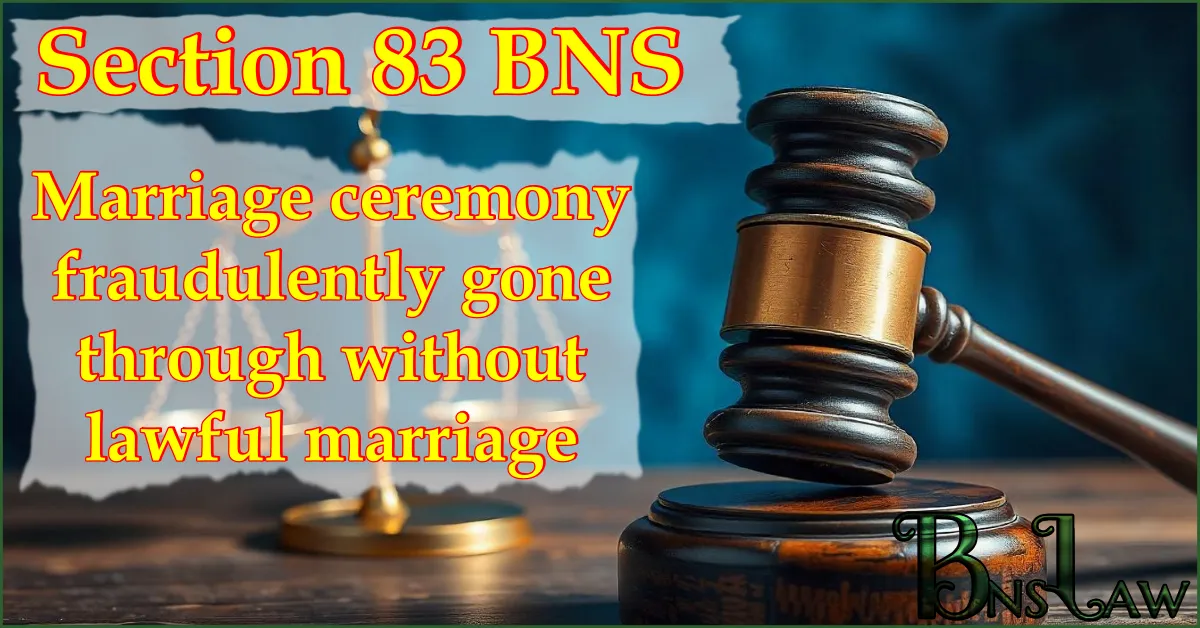Section 80 BNS | BNS 80 | Dowry death in BNS
80(1) BNS
Where the death of a woman is caused by any burns or bodily injury or occurs otherwise than under normal circumstances within seven years of her marriage and it is shown that soon before her death she was subjected to cruelty or harassment by her husband or any relative of her husband for, or in connection with, any demand for dowry, such death shall be called “dowry death”, and such husband or relative shall be deemed to have caused her death.
Explanation— For the purposes of this sub-section, “dowry” shall have the same meaning as in section 2 of the Dowry Prohibition Act, 1961 (28 of 1961).
80(2) BNS
Whoever commits dowry death shall be punished with imprisonment for a term which shall not be less than seven years but which may extend to imprisonment for life
READ OTHER SECTIONS OF CHAPTER V — OF OFFENCES AGAINST WOMAN AND CHILD
FAQs of BNS Section 80
-
80 BNS punishment and fine
Punishment and fine under Section 80(2) of the BNS: Imprisonment for not less than 7 years but which may extend to imprisonment for life.
-
80 BNS cognizable or not
The offence under Section 80(2) of the BNS is cognizable.
-
80 BNS bailable or not
The offence under Sections 80(2) of the BNS is non-bailable.
-
80 BNS trial court
Offence specified in Section 80(2) of the BNS is triable by the Court of Session.
Important Points
- Cognizable Offences: These are offences where a police officer can arrest a person without a warrant.
- Non-Cognizable Offences: These are offences where a police officer cannot arrest a person without a warrant.
- Bailable Offences: These are offences where the accused can get bail from the police station itself. All bailable offences are listed in the First Schedule of the Bharatiya Nagarik Suraksha Sanhita (BNSS).
- Non-Bailable Offences: Offences in which bail is not granted directly from the police station but after hearing the case in the court, the judge decides when bail will be granted. All non-bailable offences are listed in the first schedule of the Bharatiya Nagarik Suraksha Sanhita (BNSS).
- In the above FAQ, “trial court” means the court that has jurisdiction to try the offence.
- In the above FAQ, the expression “Magistrate of the first class” and “Any Magistrate” does not include Executive Magistrates.
Read other Sections of the BNS
Reference Link: New Criminal Laws (BNS), Ministry of Home Affairs







